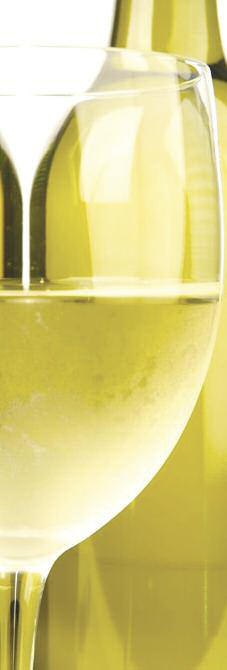liquid assets
RISING TO THE OCCASION
Native yeasts make great wine.
WRITTEN BY TY MARTIN
Spring is in the air and so is yeast.
That’s right, that tasty little bugger that gives rise to your bread, sparkle to your champagne, and alcohol to your favorite libation is riding those refreshing spring currents right now. Often misunderstood, yeast is a microorganism that lives all around us –– on the skin of fruit, in flowers, in the soil, and even in the depths of the ocean, and on our bodies. By converting carbohydrates (i.e. sugars) to ethanol (the fun stuff that, in moderation, encourages conversation and lifts the spirit) during fermentation, yeast is responsible for all the world’s spirituous libations, both great and humble.
In making wine, we have a critical choice: Do we allow the native yeasts that exist in the vineyard and cellar to ferment our grape juice or do we inoculate with a designer yeast created in a sterile laboratory? The commercial yeast is fast, reliable, and can be tailored to produce certain flavors that marketing companies love. Native yeasts are finicky. They don’t like added sulfur, hate pesticides and herbicides, can be slow to start, ponderous in completing fermentation, and categorically refuse to meet production deadlines. What’s a winemaker to do?
The French answered this question with one little word: terroir. The idea of terroir is based less on grape variety and aging technique and more on soil and climate. Wine made following this philosophy can taste so strongly of place that it can transport us to a fondly remembered vacation or give us a glimpse of some faraway place to which we’ve only dreamed of traveling. Making wine without a nod to terroir leaves out the connection that makes wine so romantic and so human as to be tied to a place.
In many ways, a winemaker is a chef. His job is to preserve the pure and complex flavors of his ingredients. With that in mind, the best winemakers may not have a tough choice at all when it comes to yeast.
Ty Martin owns Craft Wine and Beer in Reno, which specializes in small production, natural wines and handcrafted, traditional beers from around the world.
|
GREAT NATURAL WINEMAKERS Thierry Puzelat, Loire Valley, France WHERE TO FIND Craft, 22 Martin St., Reno, 775-622-4333, Craftreno.net L’uva Bella Wine Gallery, The Summit, 13925 S. Virginia St., Reno, 775-851-1110, Luvabellawinegallery.com Whispering Vine, 3886 Mayberry Drive, 775-787-9463 and 85 Foothill Road, Reno, 775-622-8080, Whisperingvinewine.com Vintage, 6135 Lakeside Drive, Reno, |


